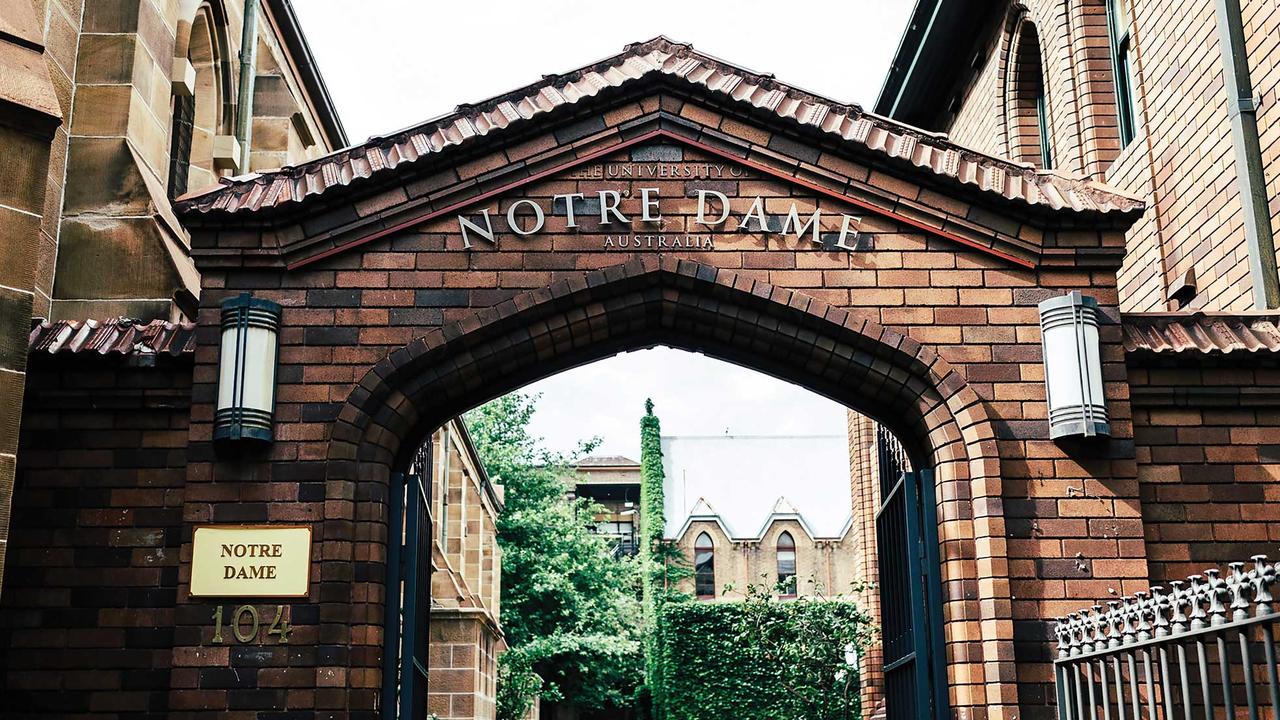Notre Dame equips ethical leaders to address an unethical problem

November 5, 2021
A new suite of postgraduate programs at The University of Notre Dame Australia is giving professionals the opportunity to develop expertise in the complex global issues that are modern slavery and human trafficking.
Slavery may have been officially abolished worldwide, but the sinister crime of treating people as commodities to be exploited for financial gain is nonetheless still widespread.
Globally, an estimated 40 million people are affected by modern slavery and human trafficking, the majority in developing countries. However, these issues are also present in developed countries, including Australia.
Many organisations with international supply chains are unaware of the complex issues associated with modern slavery and human trafficking. How does the demand for goods and services contribute to unethical practices? And how do business decisions intersect with the exploitation of labour?
The Commonwealth Modern Slavery Act 2018 is now contingent on mandatory reporting for organisations in Australia with revenue of more than $100m annually.
This requires business professionals to understand the risks of modern slavey in their operations and supply chains.
“Modern slavery is a huge issue and, whether businesses in Australia understand or not, they’re often providing the demand for goods that are produced by modern slavery,” said Politics and International Relations Professor Martin Drum, from the University of Notre Dame Australia. “Slavery exists because we are part of the market for it.
“The cohort of people that are more interested in where their goods are coming from is slowly increasing. Like environmental sustainability, people are going to be asking more and more questions in this space.
“It’s only going to be more important and critical to what businesses do.”
Moving forward, individual businesses will rely on people with understanding not only of the legislative requirements associated with modern slavery and human trafficking, but also of the complex factors associated with these unethical practices.
These professionals will also play a crucial role in the collective global response to these issues.
In reaction to this pressing problem, Professor Drum and his colleagues at Notre Dame have developed a suite of new postgraduate programs for those who would like to develop knowledge of the legal, ethical and practical aspects of the issue.
The Graduate Certificate, Graduate Diploma and Master of Arts programs in Modern Slavery and Human Trafficking offer a multidisciplinary perspective, bringing together courses in Law, Business, Philosophy and Arts.
The programs provide the knowledge and skills for graduates to work as leaders in workplaces and in the wider community to proactively to put an end to the exploitation of vulnerable people.
Students will explore the complex and mostly hidden crimes associated with modern slavery and human trafficking and analyse them from a human rights perspective as well as from legal and business standpoints.
The programs cover key areas, including Australian and international legislative responses, the risks to business and supply chains, and the efforts made by global and local organisations to combat the ongoing existence of these illegal practices.
The Graduate Certificate is a foundation program of four courses covering practical topics that relate to business practices and legal compliance, plus law enforcement, and ethical and moral leadership.
Those who choose to delve deeper with the Graduate Diploma may take fieldwork and case study courses, while in the Master of Arts program students can choose between an Applied Research mode and a Professional Practice mode.
The former provides research design and methodology skills and culminates in a substantial research project, while the latter offers specialist insights and expertise to support students in developing ethical decision-making skills and includes an applied professional project, co-designed with a partner organisation.
Notre Dame’s collaboration with international foundations, human rights groups and university partners will ensure students receive a global perspective and can apply their knowledge and skills immediately for community benefit.
A range of elective courses are available so students can tailor their study plan based on their professional or personal interests.
The programs are also accessible for working professionals, since the mandatory courses – and some elective courses – are delivered online, with full-time and part-time study modes available. Other electives are available in blended mode for those who would like to complement their online study with elements of in-person learning at Notre Dame’s campuses in either Fremantle or Sydney.
“We’re growing more and more interconnected. That time when we did everything on our own and understood who was producing things from the farm to the plate – that’s become much more complex these days,” Professor Drum said.
“That’s why understanding these issues is really critical. But you also need the skills to be able to do something about it.”
Notre Dame’s new programs are designed to provide exactly that: a combination of knowledge and skills to produce ethically minded graduates who are equipped to tackle this unethical problem.
Chelsea Hayes is from the University of Notre Dame Australia.
For all the latest Education News Click Here
For the latest news and updates, follow us on Google News.

